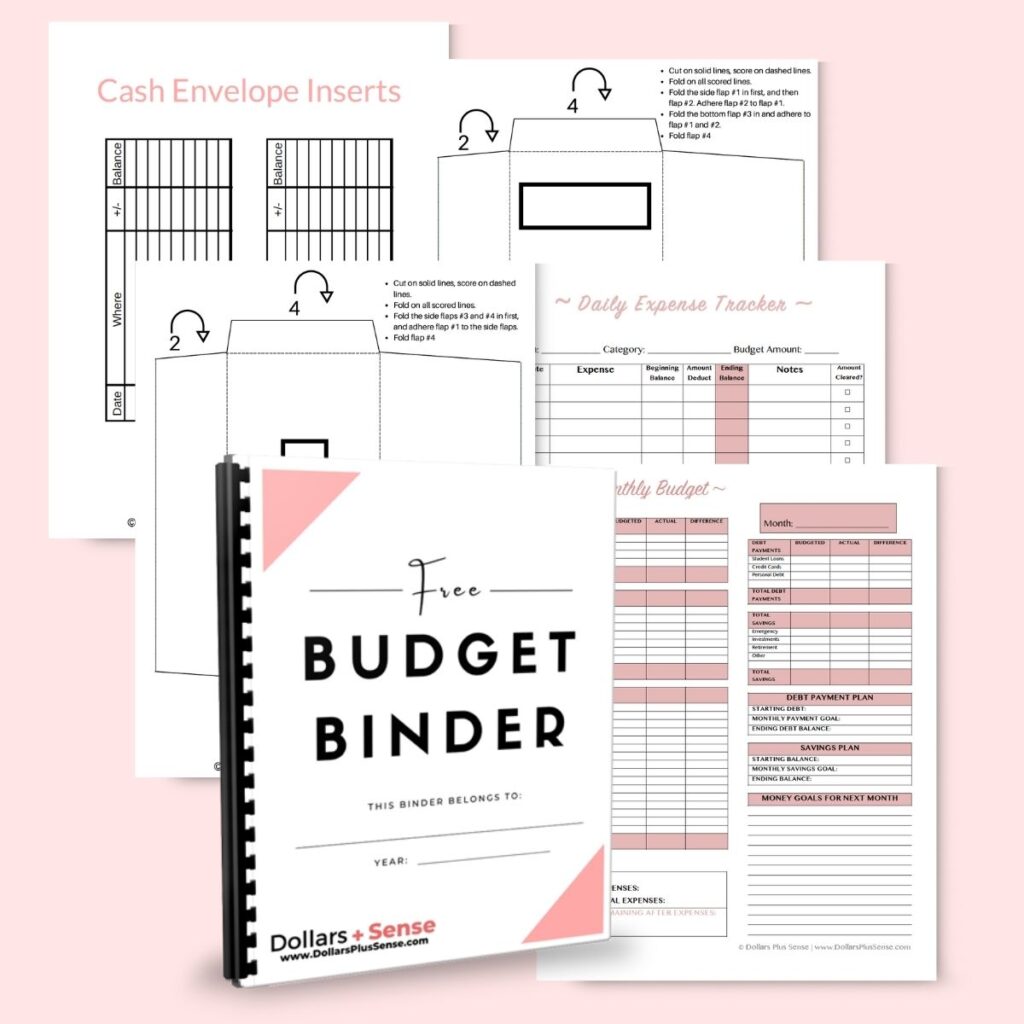Last Updated May 3, 2023
Do you want to know how to improve time management and be more productive? I know this is something I’ve struggled with until I found a system and tools that worked for me. Find out some proven tips to help you improve your time management skills. Plus, some tools you need to help you.
Why Is Time Management Important?
Managing your time effectively is a good habit to have in life. Time management is important because it helps you be more productive during your day so you can meet your goals.
When you’re productive, you reduce wasted time, stress, and anxiety. You also increase the quality of your work because you’re not rushing through the task to meet a deadline.
10 Proven Time Management Tips
I know you want to know how to improve time management and be more productive. So here are 10 proven time management tips you can use to be more productive at home or at work.
1. Use Tools To Help You
The first step to improve your time management skills is having the right tools. I love planners and have tried so many different ones. But my favorite planner is the Financial Goal Planner.
I created the Financial Goal Planner because I couldn’t find a planner I liked specifically dedicated to managing your time and your finances.
The Financial Goal Planner is a carefully curated planner filled with 37 pages worth of printables to help you manage your time, make a plan for financial success, and crush your financial goals.
This goal planner has everything you need to be productive, manage your time wisely, organize your finances, and set money goals.
You will save money because you never have to buy another planner again. Keep the files for life and reprint the pages you need—or keep it in the digital format and use it with a note-taking app like GoodNotes.
If you use it in a digital format with a note-taking app, you can easily duplicate and reuse pages. It also helps you save on printing costs. Finally, It makes it much easier to carry around with you every day.
2. Understand Where Your Time Goes

The next step to improve your time management skills is understanding where your time goes. Start by tracking your time to see how much time you spend on your various daily activities.
Write down everything you do that day and track your time.
When I did this, I found that I was spending WAY too much time watching TV, checking emails, surfing on social media, or playing games on my phone. Once I understood where my time was going, I knew I had to make some adjustments.
I recommend you do the same. Track your time so you can know where most of your time is going. You will probably be surprised by the results. Often, we are spending too much time on things that are not productive; or we’re just trying to do too much.
Once you know where your time goes, make any necessary adjustments based on your priorities.
3. Make A To-Do List

One of the most important ways to manage your time better is to make a to-do list. We’re not good at remembering a lot of things all at once. So make a to-do list to help you keep track of everything you need to do.
Making a to-do list sounds simple enough, but did you know there’s a right way and a wrong way to make a to-do list? I like to think of myself as being an organized person, but I’ve been going about making my to-do list the wrong way.
Do any of these things sound familiar to you? You feel like:
- You’re not making any real progress with your goals.
- Your to-do list is never-ending.
- You’re not getting what you want accomplished, and you’re rolling too many things over into the next day.
I felt like this so many times! I found the Financial Goal Planner to be extremely helpful when making a to-do list the right way.
The correct way to make a to-do list is:
- List everything you need to do. This is commonly called a “brain dump.” Basically, anything you can think of, you want to write it down.
- Then prioritize and only pick a few things you must do today. I personally don’t like to have more than 5 things I need to do in a day. If you try to do too much all at once, you will feel overwhelmed.
- Finally, set out to complete your most important tasks when you’re most alert. For the majority of us, that’s in the morning or early in the day; but pick the time of day that’s best for you.

With the Daily Planner printable, I do my “brain dump” under the “To Do List” section on the right-hand side. Next, I put a number next to each item in order of priority. The number 1 means that item on my to-do list is a top priority. The number 2 means it’s second priority and so on.
After using the Daily Planner, I’m able to accomplish what I set out to do for the day.
4. Prioritize Tasks
I’ve already mentioned this when writing your to-do list, but it’s so important that I will mention this again. Once you make your to-do list, you need to figure out what are the most important things you need to do today. When you’re finished listing everything you need to do, give each task a weight of importance.
Figure out what tasks are your MUST DO tasks. Then decide what needs to get done and when. This will help you prioritize your tasks.
You can use the A, B, C, D, E Method suggested in the book “Million Dollar Habits.” In this book, written by Brian Tracy, he breaks down this method as follows:
A – something you MUST do
B – something you SHOULD do
C – something that would be nice to do, but doesn’t really matter if the task is done or not
D – something you can and should delegate to others
E – something you can eliminate as quickly as possible
With this method, you complete all your A tasks before you move on to a B task, and so on. You can use my FREE Daily Goal Planner to help you prioritize your daily To-Do List.
If something doesn’t get done that day, it’s okay, because you set out to do your most important tasks first.
5. Make A Schedule
The next way to manage your time better is to make a schedule. Once you figure out what tasks you need to get done first, you need to decide how long each task will take. You can’t squeeze 9 hours’ worth of work into 7 hours.

I personally like to use the task blocking strategy because I find I’m more productive that way.
Task blocking is when you batch similar tasks together. For example, some tasks I usually task block are:
- responding to all emails
- meal planning
- paper/mail organization
- laundry
- returning phone calls
- paying bills
- budgeting
- running all your errands, or
- preparing all your meals for the week.
Here’s how you task block:
- Make a list of all the tasks you need to accomplish
- Color-code all your similar activities.
- Group all your tasks logically by their function or locations.

For example, in the picture above, I color-code my tasks based on personal tasks (yellow), work tasks (pink), and blog tasks (purple).
Now once you have all of your tasks blocked together, you have to plug it into your daily planner.


6. Set Deadlines

Another important way to manage your time better is to set a realistic deadline and stick to it. I like to set deadlines by the day (meaning the day this task is due) and by the hour.
The way I set deadlines by the hour is to set a time limit or cut off hour of when I will stop working on a task for the day. I accomplish this by using the time blocking strategy.
Time blocking is when you block off your time for just one task (or group of similar tasks—aka task batching). This technique is essential in keeping your to-do list realistic, focused, and organized.
Time blocking also improves your productivity. This is because it forces you to take into consideration how long a task will take, so your to-do list won’t get out of hand.
7. Don’t Multitask

Multi-tasking can actually make you less productive and take you longer to complete a task. When you multitask, your focus is divided and you lose efficiency.
You actually want to focus on the task you have in front of you. Once you’re in a certain mode, it’s best to just focus on that mode until the task is done. You don’t want to waste time switching gears.
If you need to work on a lot of things at once, try to group them into similar tasks (like the task blocking method I mentioned earlier) so that the transition between tasks is more seamless.
So if you want to improve your time management skills, don’t multitask.
8. Take Breaks

The human brain isn’t designed to work continuously on the same task and this could be a reason for a lot of wasted time. Make sure you take regular, structured breaks away from your task so that you can come back refreshed and ready to be more productive.
Getting enough rest and taking breaks is important for productivity. Working constantly without breaks or enough sleep will take a toll on your performance and lead to burn out.
If you overwork yourself, it is counterproductive because it will affect the quality of your work. You will likely make more mistakes and not do a good job. In turn, you will waste more time because you have to go back and fix what you’ve already done.
So make sure you get a good night’s rest every night; take breaks during work; and find time to relax or go on a vacation.
Even a break as short as 5 minutes is enough to keep your mind sharp and wards off fatigue.
9. Don’t Put It Off
One of the best ways to manage your time better is to stop procrastinating. Procrastination kills productivity and wastes a lot of time and energy.
If it can be done today, do it today.
10. Delegate Tasks

The truth of the matter is that no matter how good you are, you can’t do everything. So delegate some of your tasks to other people to improve your time management skills and productivity.
Delegating or outsourcing are real time-savers since it lessens your workload—which means you have more time to spend on more important tasks.
Summary
Time management requires discipline, planning, and the help of a few good tools. I highly recommend you use the Financial Goal Planner as your tool to help you improve your time management skills.
Since using the Financial Goal Planner, I have been way more productive. It has also helped me to improve the systems I was already using. Even if you’re not interested in the Financial Goal Planner, give some of these tips a try and see your time management improve.
Related Articles:
- 10 Habits Of Successful People (That You Should Have Too)
- How To Set Realistic Financial Goals You Can Actually Accomplish
- The Best Way To Prioritize And Achieve Your Financial Goals
If you want to remember this article, pin it to your favorite Pinterest board.















Hello, you have a great finesse in writing the blogs. Keep on writing more on these lines. Enjoyed reading this, great insights. Thanks!
Thanks for reading!